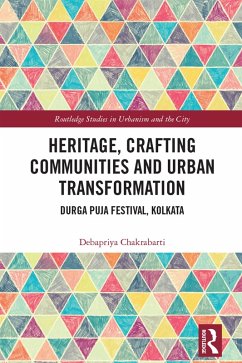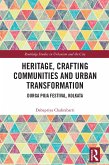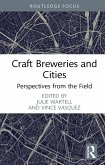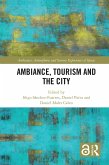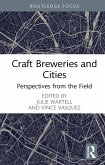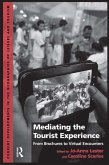Debapriya Chakrabarti
Heritage, Crafting Communities and Urban Transformation (eBook, PDF)
Durga Puja Festival, Kolkata
42,95 €
42,95 €
inkl. MwSt.
Sofort per Download lieferbar

21 °P sammeln
42,95 €
Als Download kaufen

42,95 €
inkl. MwSt.
Sofort per Download lieferbar

21 °P sammeln
Jetzt verschenken
Alle Infos zum eBook verschenken
42,95 €
inkl. MwSt.
Sofort per Download lieferbar
Alle Infos zum eBook verschenken

21 °P sammeln
Debapriya Chakrabarti
Heritage, Crafting Communities and Urban Transformation (eBook, PDF)
Durga Puja Festival, Kolkata
- Format: PDF
- Merkliste
- Auf die Merkliste
- Bewerten Bewerten
- Teilen
- Produkt teilen
- Produkterinnerung
- Produkterinnerung

Bitte loggen Sie sich zunächst in Ihr Kundenkonto ein oder registrieren Sie sich bei
bücher.de, um das eBook-Abo tolino select nutzen zu können.
Hier können Sie sich einloggen
Hier können Sie sich einloggen
Sie sind bereits eingeloggt. Klicken Sie auf 2. tolino select Abo, um fortzufahren.

Bitte loggen Sie sich zunächst in Ihr Kundenkonto ein oder registrieren Sie sich bei bücher.de, um das eBook-Abo tolino select nutzen zu können.
This book emphasises the need to empower marginalised communities to contribute to decision-making processes within policy realms.
- Geräte: PC
- mit Kopierschutz
- eBook Hilfe
Andere Kunden interessierten sich auch für
![Heritage, Crafting Communities and Urban Transformation (eBook, ePUB) Heritage, Crafting Communities and Urban Transformation (eBook, ePUB)]() Debapriya ChakrabartiHeritage, Crafting Communities and Urban Transformation (eBook, ePUB)42,95 €
Debapriya ChakrabartiHeritage, Crafting Communities and Urban Transformation (eBook, ePUB)42,95 €![Craft Breweries and Cities (eBook, PDF) Craft Breweries and Cities (eBook, PDF)]() Craft Breweries and Cities (eBook, PDF)23,95 €
Craft Breweries and Cities (eBook, PDF)23,95 €![Ambiance, Tourism and the City (eBook, PDF) Ambiance, Tourism and the City (eBook, PDF)]() Ambiance, Tourism and the City (eBook, PDF)42,95 €
Ambiance, Tourism and the City (eBook, PDF)42,95 €![Slow Tourism, Food and Cities (eBook, PDF) Slow Tourism, Food and Cities (eBook, PDF)]() Slow Tourism, Food and Cities (eBook, PDF)46,95 €
Slow Tourism, Food and Cities (eBook, PDF)46,95 €![Craft Breweries and Cities (eBook, ePUB) Craft Breweries and Cities (eBook, ePUB)]() Craft Breweries and Cities (eBook, ePUB)23,95 €
Craft Breweries and Cities (eBook, ePUB)23,95 €![Mediating the Tourist Experience (eBook, PDF) Mediating the Tourist Experience (eBook, PDF)]() Mediating the Tourist Experience (eBook, PDF)52,95 €
Mediating the Tourist Experience (eBook, PDF)52,95 €![The Rise of Thana-Capitalism and Tourism (eBook, PDF) The Rise of Thana-Capitalism and Tourism (eBook, PDF)]() Maximiliano E. KorstanjeThe Rise of Thana-Capitalism and Tourism (eBook, PDF)30,95 €
Maximiliano E. KorstanjeThe Rise of Thana-Capitalism and Tourism (eBook, PDF)30,95 €-
-
-
This book emphasises the need to empower marginalised communities to contribute to decision-making processes within policy realms.
Dieser Download kann aus rechtlichen Gründen nur mit Rechnungsadresse in A, B, BG, CY, CZ, D, DK, EW, E, FIN, F, GR, HR, H, IRL, I, LT, L, LR, M, NL, PL, P, R, S, SLO, SK ausgeliefert werden.
Produktdetails
- Produktdetails
- Verlag: Taylor & Francis eBooks
- Seitenzahl: 186
- Erscheinungstermin: 6. Oktober 2023
- Englisch
- ISBN-13: 9781000983746
- Artikelnr.: 68555438
- Verlag: Taylor & Francis eBooks
- Seitenzahl: 186
- Erscheinungstermin: 6. Oktober 2023
- Englisch
- ISBN-13: 9781000983746
- Artikelnr.: 68555438
- Herstellerkennzeichnung Die Herstellerinformationen sind derzeit nicht verfügbar.
Debapriya Chakrabarti is a researcher in the field of urban studies at the Manchester Institute of Innovation Research and teaches at the Manchester School of Architecture. She is trained as an architect and urban planner. Her research interests lie at the intersection of urban regeneration, cultural industries, and place-based development policies.
Lists Of FiguresList Of TablesPrefaceAcknowledgement Chapter 1 Durga Puja, Kumartuli and KolkataFestival, religion, culture, and politicsColonial Calcutta's Durga PujaBarowari brought inclusivityCultural heritage, informality, and idol-crafting practiceStructure of the bookChapter 2 Crafts and Practitioners Idol crafting practice and sustainability Kumbhakar caste relates to pottery The Caste-based potters' para Interwoven communities of practice Emerging actors and shiftsChapter 3 The spaces of production The neighbourhood Streetscapes, alleys, riverfront The conventional workshop-residence The 'factory-shed' workshopChapter 4 Seasonal adaptations and everyday negotiation The preparation phase Adaptation, accommodations, and negotiationsInfrastructural disrepair and hopelessnessSocial cohesion, coordination, and competitionWill Kumartuli continue to thrive?Chapter 5 Complexities The redevelopment plan Reaction and resistance to the KMDA plan Tenure and ownership: realities Informality in the heritageChapter 6 The emerging and diverging spaces of production Kumartuli on a regular day Changing spaces: Repurposed workshop Agency and new typologies Appropriation and socio-spatial relations Spatial flexibility and reparation in a Kolkata bastiChapter 7 Kumartuli's future? Kumartuli's present Reparations and public services Contributions and implications of this research Recommendations Personal reflectionMethodological Appendix: Research Strategies Practice Theory research method FieldworkGlossary of Bengali wordsIndex
Lists Of FiguresList Of TablesPrefaceAcknowledgement Chapter 1 Durga Puja,
Kumartuli and KolkataFestival, religion, culture, and politicsColonial
Calcutta's Durga PujaBarowari brought inclusivityCultural heritage,
informality, and idol-crafting practiceStructure of the bookChapter 2
Crafts and Practitioners Idol crafting practice and sustainability
Kumbhakar caste relates to pottery The Caste-based potters' para Interwoven
communities of practice Emerging actors and shiftsChapter 3 The spaces of
production The neighbourhood Streetscapes, alleys, riverfront The
conventional workshop-residence The 'factory-shed' workshopChapter 4
Seasonal adaptations and everyday negotiation The preparation phase
Adaptation, accommodations, and negotiationsInfrastructural disrepair and
hopelessnessSocial cohesion, coordination, and competitionWill Kumartuli
continue to thrive?Chapter 5 Complexities The redevelopment plan Reaction
and resistance to the KMDA plan Tenure and ownership: realities Informality
in the heritageChapter 6 The emerging and diverging spaces of production
Kumartuli on a regular day Changing spaces: Repurposed workshop Agency and
new typologies Appropriation and socio-spatial relations Spatial
flexibility and reparation in a Kolkata bastiChapter 7 Kumartuli's future?
Kumartuli's present Reparations and public services Contributions and
implications of this research Recommendations Personal reflection
Methodological Appendix: Research Strategies Practice Theory research
method FieldworkGlossary of Bengali wordsIndex
Kumartuli and KolkataFestival, religion, culture, and politicsColonial
Calcutta's Durga PujaBarowari brought inclusivityCultural heritage,
informality, and idol-crafting practiceStructure of the bookChapter 2
Crafts and Practitioners Idol crafting practice and sustainability
Kumbhakar caste relates to pottery The Caste-based potters' para Interwoven
communities of practice Emerging actors and shiftsChapter 3 The spaces of
production The neighbourhood Streetscapes, alleys, riverfront The
conventional workshop-residence The 'factory-shed' workshopChapter 4
Seasonal adaptations and everyday negotiation The preparation phase
Adaptation, accommodations, and negotiationsInfrastructural disrepair and
hopelessnessSocial cohesion, coordination, and competitionWill Kumartuli
continue to thrive?Chapter 5 Complexities The redevelopment plan Reaction
and resistance to the KMDA plan Tenure and ownership: realities Informality
in the heritageChapter 6 The emerging and diverging spaces of production
Kumartuli on a regular day Changing spaces: Repurposed workshop Agency and
new typologies Appropriation and socio-spatial relations Spatial
flexibility and reparation in a Kolkata bastiChapter 7 Kumartuli's future?
Kumartuli's present Reparations and public services Contributions and
implications of this research Recommendations Personal reflection
Methodological Appendix: Research Strategies Practice Theory research
method FieldworkGlossary of Bengali wordsIndex
Lists Of FiguresList Of TablesPrefaceAcknowledgement Chapter 1 Durga Puja, Kumartuli and KolkataFestival, religion, culture, and politicsColonial Calcutta's Durga PujaBarowari brought inclusivityCultural heritage, informality, and idol-crafting practiceStructure of the bookChapter 2 Crafts and Practitioners Idol crafting practice and sustainability Kumbhakar caste relates to pottery The Caste-based potters' para Interwoven communities of practice Emerging actors and shiftsChapter 3 The spaces of production The neighbourhood Streetscapes, alleys, riverfront The conventional workshop-residence The 'factory-shed' workshopChapter 4 Seasonal adaptations and everyday negotiation The preparation phase Adaptation, accommodations, and negotiationsInfrastructural disrepair and hopelessnessSocial cohesion, coordination, and competitionWill Kumartuli continue to thrive?Chapter 5 Complexities The redevelopment plan Reaction and resistance to the KMDA plan Tenure and ownership: realities Informality in the heritageChapter 6 The emerging and diverging spaces of production Kumartuli on a regular day Changing spaces: Repurposed workshop Agency and new typologies Appropriation and socio-spatial relations Spatial flexibility and reparation in a Kolkata bastiChapter 7 Kumartuli's future? Kumartuli's present Reparations and public services Contributions and implications of this research Recommendations Personal reflectionMethodological Appendix: Research Strategies Practice Theory research method FieldworkGlossary of Bengali wordsIndex
Lists Of FiguresList Of TablesPrefaceAcknowledgement Chapter 1 Durga Puja,
Kumartuli and KolkataFestival, religion, culture, and politicsColonial
Calcutta's Durga PujaBarowari brought inclusivityCultural heritage,
informality, and idol-crafting practiceStructure of the bookChapter 2
Crafts and Practitioners Idol crafting practice and sustainability
Kumbhakar caste relates to pottery The Caste-based potters' para Interwoven
communities of practice Emerging actors and shiftsChapter 3 The spaces of
production The neighbourhood Streetscapes, alleys, riverfront The
conventional workshop-residence The 'factory-shed' workshopChapter 4
Seasonal adaptations and everyday negotiation The preparation phase
Adaptation, accommodations, and negotiationsInfrastructural disrepair and
hopelessnessSocial cohesion, coordination, and competitionWill Kumartuli
continue to thrive?Chapter 5 Complexities The redevelopment plan Reaction
and resistance to the KMDA plan Tenure and ownership: realities Informality
in the heritageChapter 6 The emerging and diverging spaces of production
Kumartuli on a regular day Changing spaces: Repurposed workshop Agency and
new typologies Appropriation and socio-spatial relations Spatial
flexibility and reparation in a Kolkata bastiChapter 7 Kumartuli's future?
Kumartuli's present Reparations and public services Contributions and
implications of this research Recommendations Personal reflection
Methodological Appendix: Research Strategies Practice Theory research
method FieldworkGlossary of Bengali wordsIndex
Kumartuli and KolkataFestival, religion, culture, and politicsColonial
Calcutta's Durga PujaBarowari brought inclusivityCultural heritage,
informality, and idol-crafting practiceStructure of the bookChapter 2
Crafts and Practitioners Idol crafting practice and sustainability
Kumbhakar caste relates to pottery The Caste-based potters' para Interwoven
communities of practice Emerging actors and shiftsChapter 3 The spaces of
production The neighbourhood Streetscapes, alleys, riverfront The
conventional workshop-residence The 'factory-shed' workshopChapter 4
Seasonal adaptations and everyday negotiation The preparation phase
Adaptation, accommodations, and negotiationsInfrastructural disrepair and
hopelessnessSocial cohesion, coordination, and competitionWill Kumartuli
continue to thrive?Chapter 5 Complexities The redevelopment plan Reaction
and resistance to the KMDA plan Tenure and ownership: realities Informality
in the heritageChapter 6 The emerging and diverging spaces of production
Kumartuli on a regular day Changing spaces: Repurposed workshop Agency and
new typologies Appropriation and socio-spatial relations Spatial
flexibility and reparation in a Kolkata bastiChapter 7 Kumartuli's future?
Kumartuli's present Reparations and public services Contributions and
implications of this research Recommendations Personal reflection
Methodological Appendix: Research Strategies Practice Theory research
method FieldworkGlossary of Bengali wordsIndex
